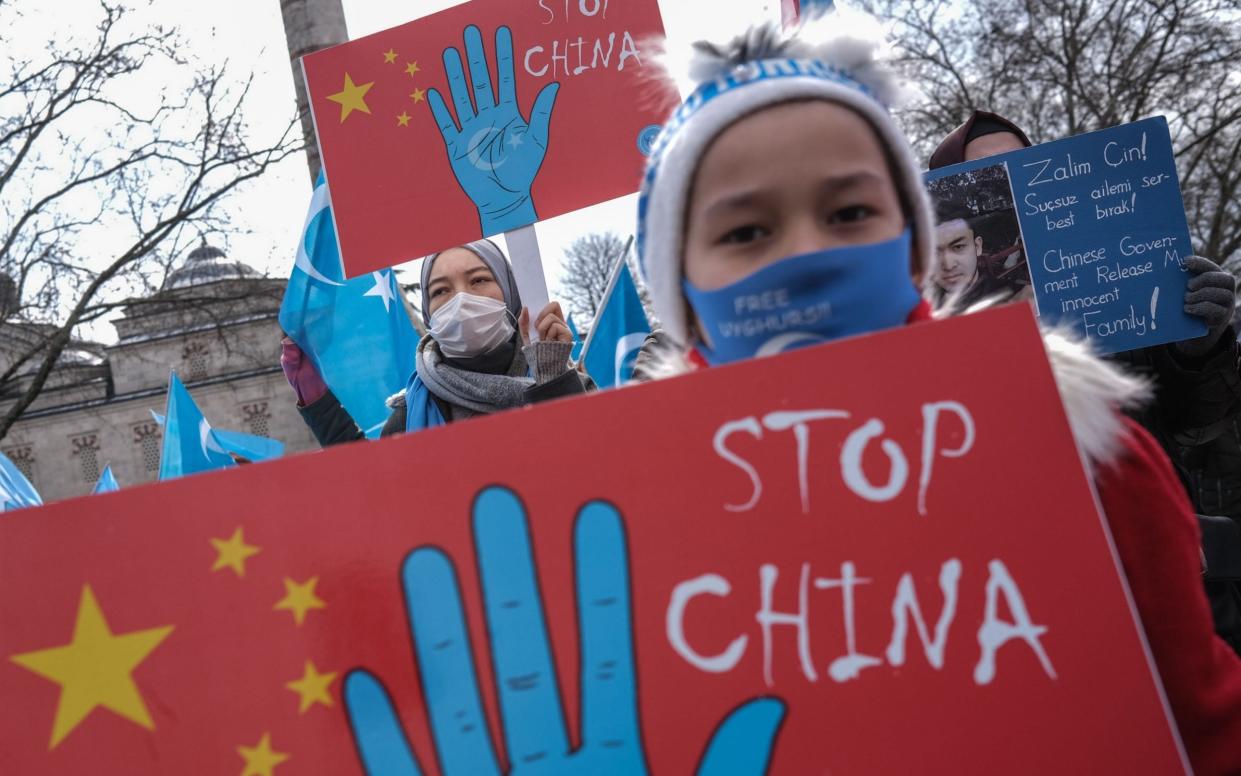Landmark case filed against Chinese officials for human rights atrocities against the Uyghurs

A landmark criminal complaint has been filed against Chinese officials for allegations of human rights abuses against the Uyghur population and other Muslim minority groups.
Activists on Wednesday launched the first-of-its-kind legal case in Argentina over allegations of genocide and crimes against humanity in Xinjiang.
Lawyers acting for the World Uyghur Congress (WUC) and the Uyghur Human Rights Project (UHRP) say the historic first – made possible under Argentina’s universal jurisdiction provisions – could offer a rare chance to pursue justice for abuses long endured at the hands of the Chinese authorities.
Camps in China’s Xinjiang province are estimated to detain one million minority Muslims, mainly of Uyghur origin, and Beijing has also been accused of carrying out a policy of forced sterilisation of women and coerced labour.
On Tuesday, a report released by Tomoya Obokata, the UN special rapporteur on modern slavery, said minorities in Xinjiang had been drafted into forced labour in agriculture and manufacturing in what could amount to “enslavement as a crime against humanity.”

The United States and politicians in other Western countries have accused China of committing “genocide” against the minority groups, although Beijing denies this.
The submission of the complaint is possible in Argentinian courts, which have jurisdictions for international crimes such as genocide, crimes against humanity, and torture wherever they take place.
If a judge rules to formally open a case, it would trigger an investigation that would see further evidence submitted by the WUC and the UHRP to demonstrate the international crimes of genocide, crimes against humanity, and torture are taking place against Uyghur and other ethnic Turkic peoples.
A judge could use such evidence to indict defendants, issue arrest warrants, send the case to trial and summon witnesses to testify under oath.
Michael Polak, a London-based international barrister and one of the lead lawyers for the activists, urged the international community to back the case to help save the Uyghurs from having their identity destroyed by a powerful state acting without any domestic legal restraints.
“The mantra ‘never again’ or ‘nunca mas’ has been repeated for many years yet we have genocide and crimes against humanity being committed against a religious and ethnic group in 2022 in an attempt to rob the Uyghurs of their rich culture and identity,” he said.

The case was likely to produce the first opportunity for Uyghurs to give their evidence in a criminal court, he added.
Among them would be Gulzira Auelkhan and Gulbahar Jelilova, who have both been detained and tortured by the Chinese authorities.
In a 2019 interview, Ms Auelkhan told the Telegraph about how she was detained and tortured for a year and a half in one of China’s vast networks of “re-education” camps.

She was later forced to work for a pittance in a factory making gloves, under threat of being sent back to the camps.
“We were told that we were ‘underprivileged’ people, and that if we refused work, we would be considered as someone with the ‘wrong’ ideology,” she said.
Ms Jelilova, a citizen of Kazakhstan where she was born, was forcibly arrested after arriving in Xinjiang on a routine business trip in 2017. She was then detained for more than a year, providing testimony that described horrific torture and sexual harassment, as well as political indoctrination.
The role of domestic courts to prosecute international crimes is becoming a more recognised pathway to bypass China and Russia at the UN Security Council, where they can use their vetoes to block the creation of new international tribunals.
Last month, a Swedish court convicted a prison official and prosecutor for links to the mass execution and torture of political prisoners in Iran.
“Our case demonstrates that there is nowhere to hide for regimes responsible for atrocity crimes,” said Omer Kanat, executive director of the UHRP.

 Yahoo Movies
Yahoo Movies 
